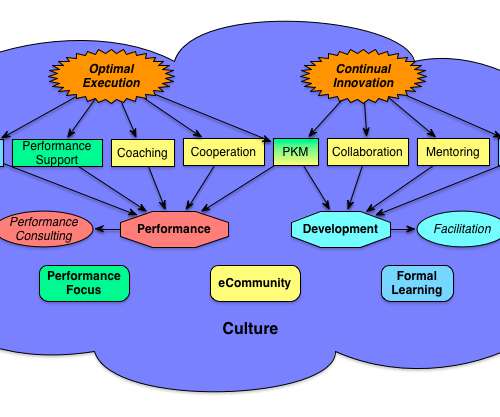Work as Improv Theater: Teaching the Right-Brained Learner.
Dashe & Thomson
JANUARY 11, 2011
The era of “left brain” dominance, and the Information Age that it engendered, are giving way to a new world in which “right brain” qualities-inventiveness, empathy, meaning-predominate. I’ve often wondered what all this right-brained thinking means for the learning industry. Good content.












































Let's personalize your content